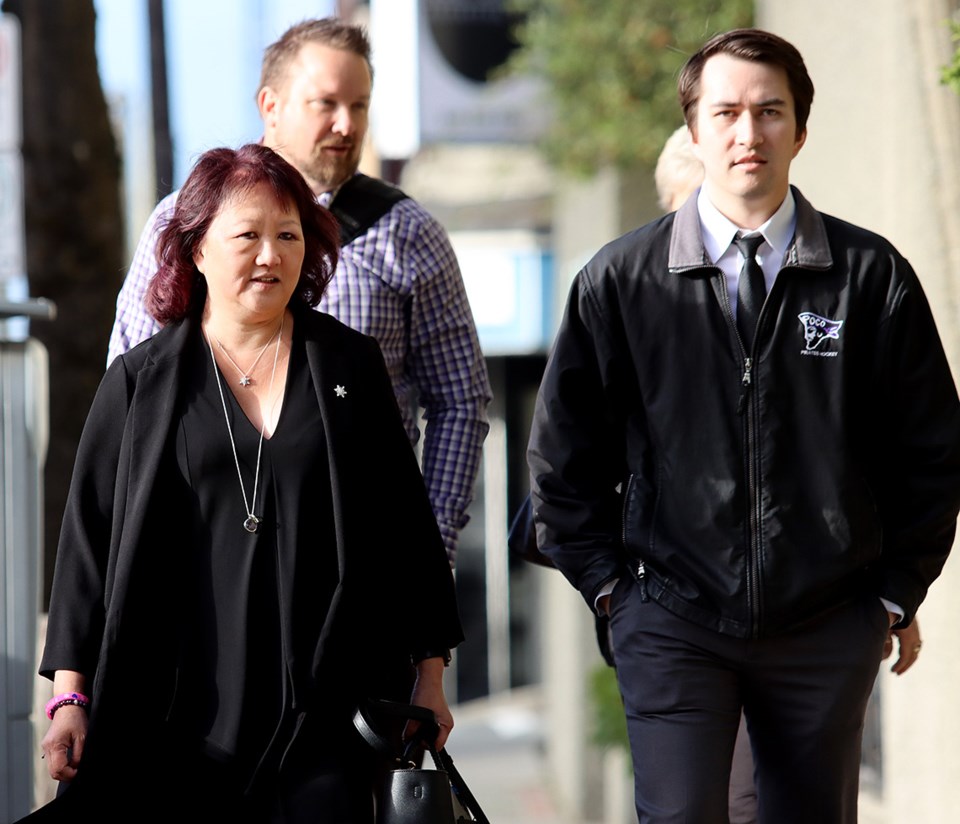The Dutch citizen convicted of “sextorting” Amanda Todd should get a dozen more years behind bars, Crown Counsel submitted this morning (Oct. 11) as the sentencing hearing started at the New Westminster Law Courts.
Lead prosecutor Louise Kenworthy asked Justice Martha Devlin at BC Supreme Court to impose a sentence of 23 years for the five counts; however, given the “totality principle,” she requested the whole sentence to be reduced to 12 years.
The totality principle allows for similar convictions that will run consecutively — i.e., one after another — to be combined into a global sentence. In this case, Kenworthy offered the following:
- 10 years for extortion, a consecutive sentence to be cut to six years
- three years for distributing child pornography, a consecutive sentence to be reduced to one year
- a judicial stay for possession of child pornography
- the maximum 10 years for child luring, to be cut to five years
- six years for criminal harassment, to run concurrently (at the same time) as the extortion sentence
Kenworthy submitted the proposed 12 years in jail run consecutively to Coban’s current sentence in the Netherlands, where he was convicted in 2017 to 10 years in jail for similar cyber crimes and blackmailing children and gay men around the world.
Kenworthy told the court that Coban had pursued Todd online for more than two years, starting in 2009 when she was 12 years old and living in Port Coquitlam.
Coban used 22 fake aliases to communicate with her, and he sent explicit images and videos of Todd to her friends, family and school administrators when Todd didn’t comply with his demands for more sex shows.
Coban’s persistent harassment of the girl was “morally repugnant,” “callous” and “devastating” for Todd, Kenworthy said, noting Coban, 44, is “unrepentant," isn’t interested in rehabilitation and is at a high-risk to reoffend.
Kenworthy also urged the court to consider a lengthy sentence to protect children who are online and cited Canadian legal precedents of recent sex crimes against minors — specifically Regina vs Friesen, a major decision by the Supreme Court of Canada in 2020.
Kenworthy highlighted the rise of online sexploitation since 2010, with Statistics Canada reporting that cases involving children had jumped 31 per cent between 2019–2021.
“The need for deterrence is extremely high,” the prosecutor told Justice Devlin.
The sentencing hearing is scheduled for four days.



